Private sector steps up for forests: Dispatches from ITTO’s Trade and Markets Day in Lomé
30 May 2025, Lomé
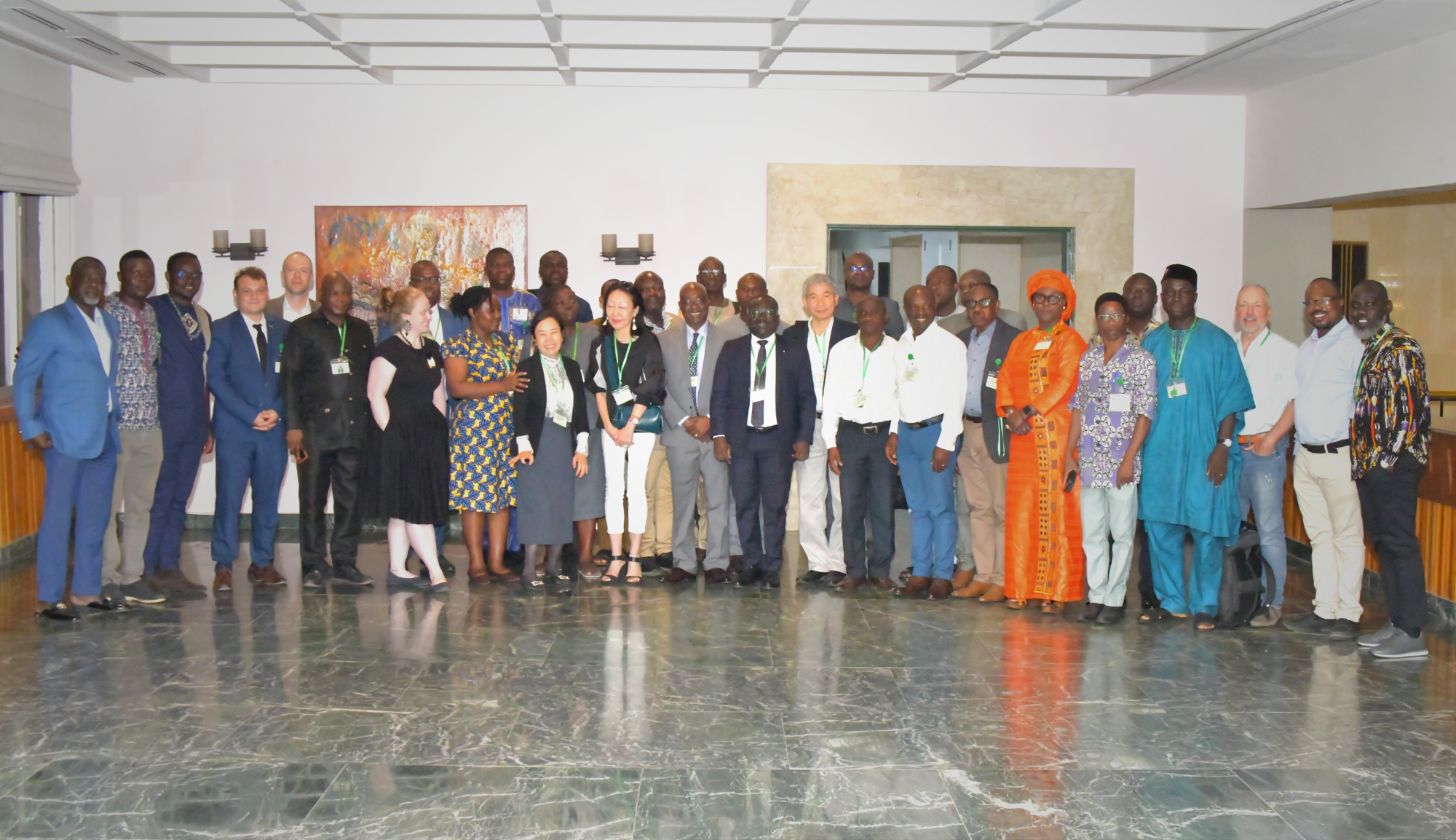
Participants of ITTO's Regional Training Workshop on CITES Non-detriment Findings (NDF) for Timber Species listed in Appendix II and Trade and Markets Day in Lomé, Togo. Photo: Koffi Azombli/ODEF
As global demand for sustainable forest products intensifies and regulatory frameworks grow more complex, the role of the private sector in shaping the future of tropical timber trade has never been more critical than now.
On 16 May 2025, the International Tropical Timber Organization (ITTO) brought together timber industry leaders, government authorities, certification bodies, and scientific experts for an intensive day of dialogue and exchange on trade and market challenges and the increasing responsibility of the private sector in Lomé, Togo.
Convened as a special event alongside the regional CITES training workshop on Non-Detriment Findings (NDF), the Trade and Markets Day aimed to explore new pathways for sustainable, legal, and competitive tropical timber trade in a rapidly evolving global context.
Throughout the day, expert presentations unfolded across seven interconnected themes, offering regional and international perspectives on forest governance, market access, and trade regulations. A key highlight came from Dr Richard Ebaa Atyi of the Center for International Forestry Research and World Agroforestry (CIFOR-ICRAF), who painted a nuanced picture of current wood demand dynamics. While construction-related demand is slowing in high-income markets, it is rising in emerging economies, with Africa’s domestic wood markets becoming increasingly significant.
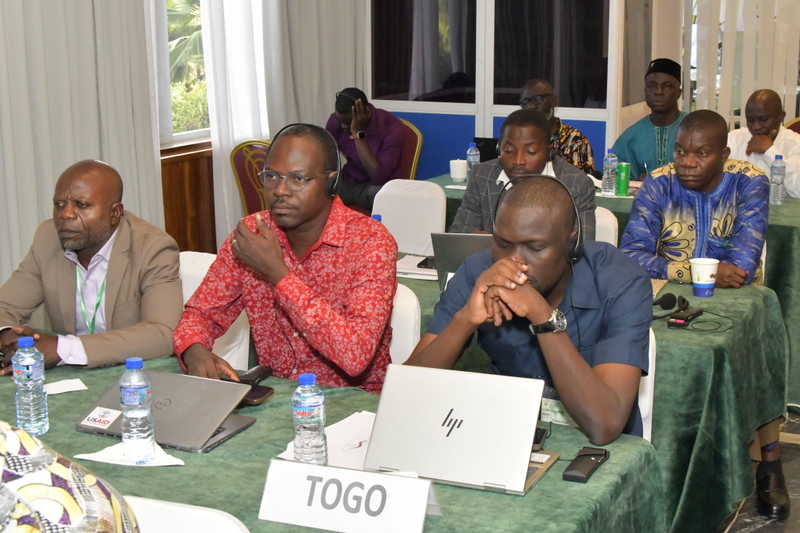
Dr Atyi emphasized the urgent need for adaptive, climate-conscious forest management and presented data showing how plantation forestry is filling the supply gap in Latin America and Southeast Asia, although it still lags behind in Africa. Dr Atyi also traced the evolution of international forest governance instruments, from CITES to FLEGT and the new EU Deforestation Regulation (EUDR), calling for better alignment between economic incentives and environmental integrity.
In a session focused on the EUDR, Mr Frank-Xaver Kraft of the German Timber Trade Federation offered a critical assessment of the regulation’s implications for exporters. While the regulation brings legal clarity and environmental ambition, its requirements are complex and unevenly understood across markets. Mr Kraft stressed that compliance hinges on effective due diligence systems, transparency, and international cooperation.
This was reinforced by Mr Lucas Millet of the Programme for the Endorsement of Forest Certification (PEFC) when he described how certification standards are evolving to align with EUDR criteria, making it easier for responsible companies to demonstrate legality and deforestation-free sourcing.
Mr Emmanuel Ebanyenle of CSIR-Forestry Research Institute of Ghana brought innovation and technology into focus by introducing the Xylorix PocketWood mobile app, a tool capable of identifying wood species in seconds through anatomical analysis. He emphasized the growing need for real-time wood tracking and verification tools, particularly in countries vulnerable to illegal logging. Digital identification and traceability, he said, are essential building blocks of credibility and market access.
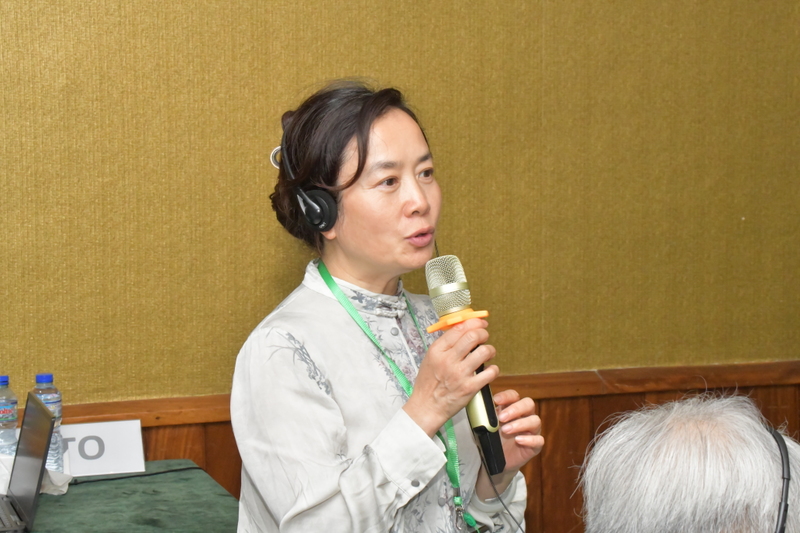
Providing a different lens, Mr Ngo Sy Hoai of the Viet Nam Timber & Forest Product Association (VIFOREST) shared the success story of Viet Nam’s forestry transformation. Following decades of deforestation, Viet Nam has emerged as a leading exporter of wood products through heavy investment in plantation forestry, legal reform, and innovative financing mechanisms, such as payments for ecosystem services and REDD+ carbon credit sales. Mr Hoai’s message was clear: even countries with deeply challenged forest histories can reposition themselves through a mix of regulation, reforestation, and private sector innovation.
Attention also turned to the broader supply chain. Dr Luo Xinjian, representing the Global Green Supply Chain (GGSC) Initiative, described how coordinated international platforms can incentivize sustainable practices by linking green finance, policy reform, and industry accountability. She asserted that legal and sustainable timber supply chains are essential not only for forest conservation but also for achieving the Sustainable Development Goals (SDGs). This reflects ITTO’s aims under its Legal and Sustainable Supply Chains (LSSC) Programme.
Regional voices from Africa brought a candid look at on-the-ground realities. In the Congo Basin, Gabon’s forests remain extensive, but timber production and exports have declined significantly. Meanwhile, countries like Ghana are seeing rising domestic consumption and a diversification of timber products, with teak emerging as a dominant export. While grappling with forest loss, Côte d’Ivoire is making strides in digital traceability and transparency reforms. Presenters from these countries underscored the urgent need to harmonize legality, sustainability, and industrial development, especially as African producers face growing pressure to comply with complex international trade regulations.
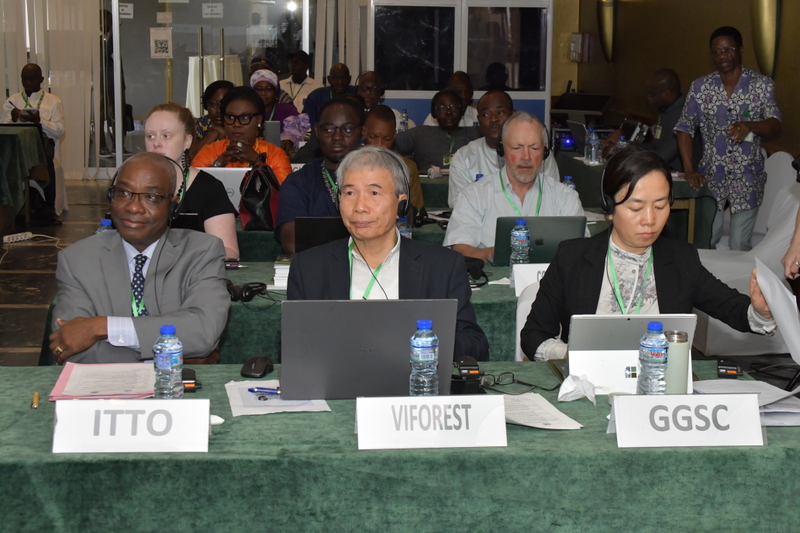
The final session of the day focused on the trade implications of Convention on International Trade in Endangered Species of Wild Fauna and Flora (CITES) Appendix II listings. Dr Steve Johnson, ITTO consultant, alongside experts Ms Ashley Amidon from the International Wood Products Association (IWPA) and Dr Franck Monthe from the Association Technique Internationale des Bois Tropicaux (ATIBT), examined how tree species listings affect conservation, legality, and market dynamics. The discussion revealed a shared desire for greater transparency in the listing process, better support for range states, and clear guidance for import-export procedures. Panelists also explored the risks posed by non-range states submitting listing proposals without coordination, potentially complicating sustainable trade rather than enhancing it. In CITES, range states are countries where a species or its natural habitat occurs naturally, while non-range states are those where the species is not naturally found.
As the day concluded, Dr Mohammed Nurudeen Iddrisu, ITTO’s Director of Trade and Industry, reminded participants that sustainability is not just an obligation but a competitive advantage. “The markets of tomorrow will demand legality, traceability, and accountability,” he said. “And the private sector will either lead that transformation or be left behind.” He urged all actors – from governments to businesses to civil society – to work together in building a timber trade that not only meets economic needs but also protects biodiversity and uplifts forest-dependent communities.
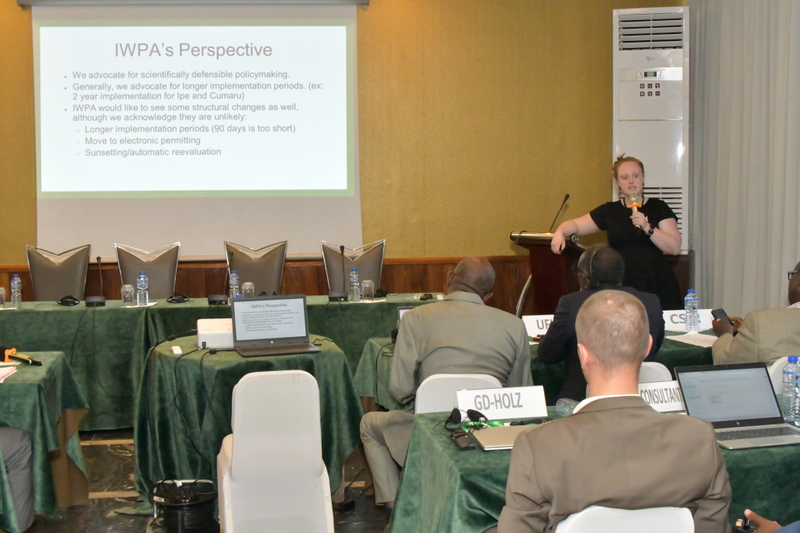
The message was unmistakable from this dialogue: The path to sustainable trade is complex but navigable. In the words of ITTO Executive Director Sheam Satkuru, “The private sector is not just a stakeholder; it is, and could be, a strong driving force for sustainable change.”
With ITTO’s continued commitment to convening, supporting, and guiding these dialogues, and with the private sector fully engaged, there is every reason to believe that these conversations will evolve into concrete actions and drive lasting transformation across the tropical timber sector.